|
Playing golf on a professional golf tour is one of the toughest career decisions you will ever make because you are continually facing the realization that your golf scoring ability is all that counts. And even though you have had it drilled into you repeatedly "to stay in the present,” and also “don't think about your golf score,” the fact is that pro tour golf is all about score, and how good your scoring ability is. This is the reality of pro tour golf... Pro Tour Success = Competitive Score Average. I was asked a good question this week from a father of one of our students who asked me why his friend’s son (who turned pro in the past two years) has been struggling to qualify to play in pro tournaments, make the cut and make some money. So I thought I would share with you why many rookie pro’s struggle to make the transition from amateur golf to pro tour golf and what they can do about it. Young and ambitious guys and gals work out pretty quickly when they get to a pro tour that unless they develop their golf scoring skills to a very high level, they are going to be faced with missing qualifying, not making cuts and not making a dollar. 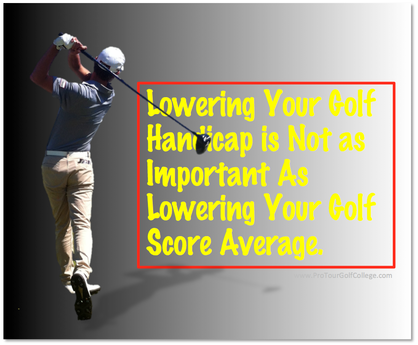 In amateur golf your golfing ability is defined more or less by how low you golf handicap is, rather than your golf score average. BIG PROBLEM if you want to play golf competitively on a pro tour sometime soon. Because the irony in amateur golf is that you can have a very low handicap and yet produce relatively high golf scores in tournaments. How does an amateur golfer who carries a 2 handicap score in the high 80’s? In other words, an amateur can play poorly in a tournament and dare I say it give up during the round, and know that there are no real consequences because they will get another chance to play in another amateur event. This mind-set of giving up on your golf score (and yourself) during the round does have dire consequences though. Even the bad habit of not handing score cards in at tournaments is destructive, and this attitude just doesn’t cut it in pro tour golf. Pro tour golf is all about making cuts and making money, that’s the bottom line. It is a business and radically different to amateur golf. You have to be mentally very tough in your ability to keep your golf score going in every round you play, and face set-backs bravely by being brilliant at bouncing back when adversity strikes. Practicing giving up on your golf score is a BIG MISTAKE! Your scoring ability is your weapon against adversity, and your level of mental resilience and competitive score average are the only things that will keep you in the game and ultimately become successful. You simply don’t have the luxury of being able to give up on your golf score when things are not going your way in pro tour golf; you have to rely on your golf scoring skills, grit and determination to keep you on track with making the cut, and making a check. Go to any national open and you will see top amateur golfers on the range going shot-for-shot with the top pro’s, but when you add up the scores at the end of 18 holes, the tour pro’s scoring ability generally shines through. Tee to green there isn’t a lot of difference between top amateurs and tour pro’s, but there’s a massive difference in scoring ability. 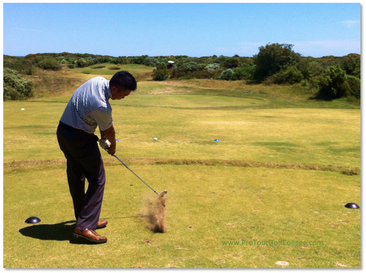 “But wait a minute I hear your say, what about so and so, they turned pro and look at how successful they have been?” For every one golfer who makes the transition from amateur to the pro tour successfully, ninety-nine won’t! So here’s what you need to know to help you make the shift in mind-set and game. Firstly you should not turn pro until you can play good enough to qualify to play in pro tournaments, and you should be able to make fifty percent or more of the cuts. Believe me, there is no value in “trying” to play on a professional golf tour. The 3 Trials of a Professional Tour Golfer Trial Number 1. You will have to be able to play good enough to qualify through a tour school to compete in professional tournaments. You will regularly be producing scores in the 60's on par 70, 71 and 72 challenging layouts in big amateur tournaments. Trial Number 2. You will have to produce a low enough competitive score average for the first 2 rounds of every professional tournament you compete in just to make the cut. This standard will be par or better for you to make a high percentage of cuts during a season. Trial Number 3. After you make the cut you will then have to produce a low score average in round 3 and 4 which will always be under par to make enough income that is greater than your expenses. These are the three trials every professional tour golfer must overcome in their career. “But I was told that turning pro is good experience?” “No, not true!” Turning pro is a very expensive, and the most important career decision that you will make, and it shouldn't be taken lightly. The person that can help you to decide when you are ready to make the plunge is your golf instructor/coach, or a professional golfer who knows you and your game well. This is one of those rare cases where some of the well-meaning people in and around golf just don’t know what they’re talking about. Ask someone who has played on a pro tour how difficult it is. They will not sugar coat it for you, they will tell you exactly how it is. Because they know how tough it is they will be honest with you and also realistic about your chances. “What if I can afford to play on a pro tour?”  It doesn’t matter whether you have the money, or you can play on someone else’s dime. The fact remains that if your scoring ability isn’t good enough you won’t make progress e.g. you won't qualify and/or make the cut - but you will spend a lot of money. Basically there are two main factors involved in your decision to become a tour golfer.
Here is an important distinction that will help you to understand the main difference in amateur golf to pro tour golf. In amateur golf you might reduce your handicap and your golf scores relatively quickly (see image below). You might for instance go from a handicap of 8 to a handicap of 2 in 18 months or less. But to go from a 2 handicap to a plus 2 handicap might take you 2 or more years. And you will need a legitimate plus 2 handicap or better to even consider becoming a pro tour golfer because as I have already explained you will need to get your high score average down to just over par on your very worst days on challenging golf courses in big amateur tournaments. The Pro Tour Performance Threshold On the pro tour there is a performance threshold or tipping point that basically determines to a great extent whether you will make more cuts than you miss, and make more money than you spend. Now when you get to the pro tour you might for example have a score average of 74 in pro tournaments for the season. And your 74 stroke average has helped you to play in some pro tournaments, make a few cuts and sometimes even make a check or two. But you need to realize that it might take you 5 or more years (you read correctly) to lower your golf score average to say 71, the tipping point where you will make many more cuts than you miss, and a lot more money than you spend. Now the question you have to ask yourself is do you have the skills and determination to overcome the 3 trials every professional tour golfer must face?
And when you qualify to play on a professional golf tour can you fund your pro tour experience for 5 or more years? In other words do you have enough game to keep paying the bills when there is “more month at the end of your money?” This is the reality of the continuous challenge of pro tour life. Like I wrote earlier, your golf scoring ability is your weapon against adversity, and your level of mental resilience and your competitive score average are the only things that will keep you in the game.
Find a golf instructor who can teach you all the skills of the game of golf - NOT JUST THE GOLF SWING, but all the shots you need to play golf successfully on tour. Develop your golf scoring ability first; train every aspect of your game to be good enough to qualify to play in professional tournaments. Remember it is not enough to qualify; then you need to learn how to make at least 70 percent of cuts. Finally, the income you earn is in direct proportion to your ability to achieve a low competitive score average. This is the bottom line of professional tour golf. Is it easy? No, but it is doable. So get to work on it today, so you can make it happen tomorrow! Lawrie Montague and David Milne - Pro Tour Golf College Your Success On Tour is Our Business Comments are closed.
|
Archives
June 2019
|
Proudly Supported By
Copyright © 2011 - 2018 Pro Tour Golf College
Website Managed By Golf Performance Media
All Rights Reserved
Website Managed By Golf Performance Media
All Rights Reserved

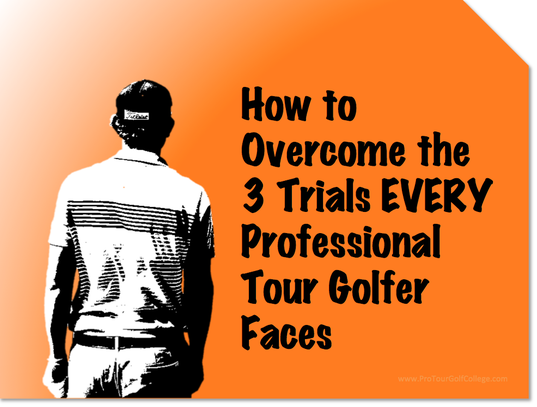
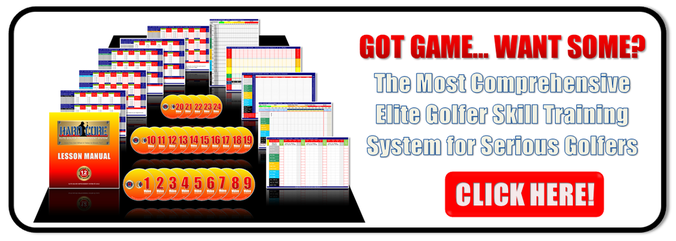
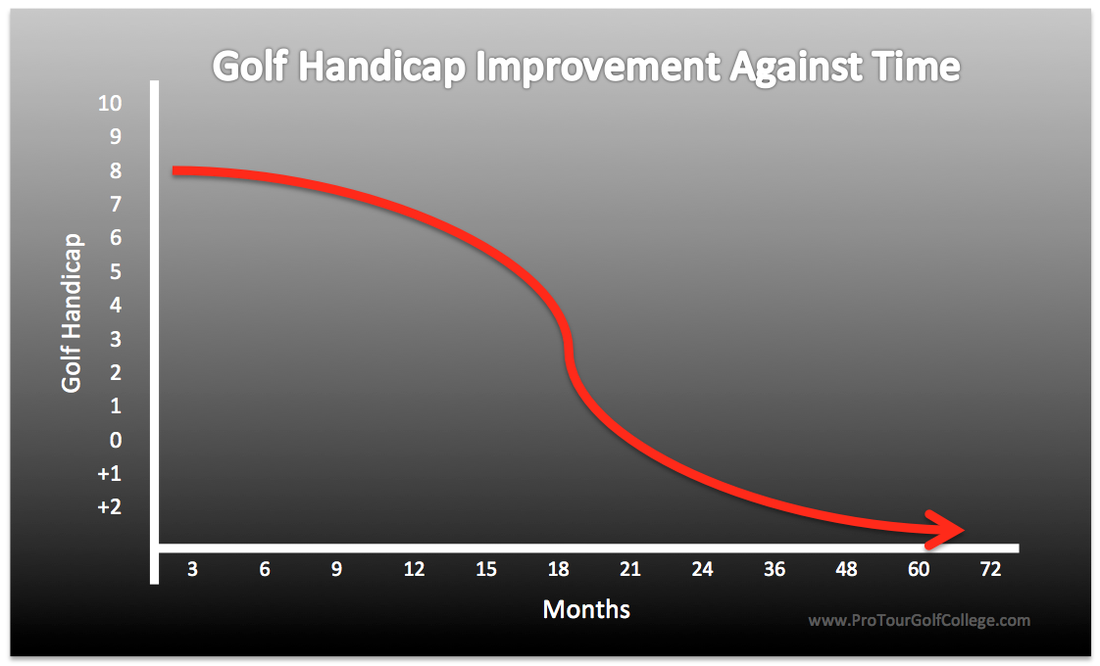
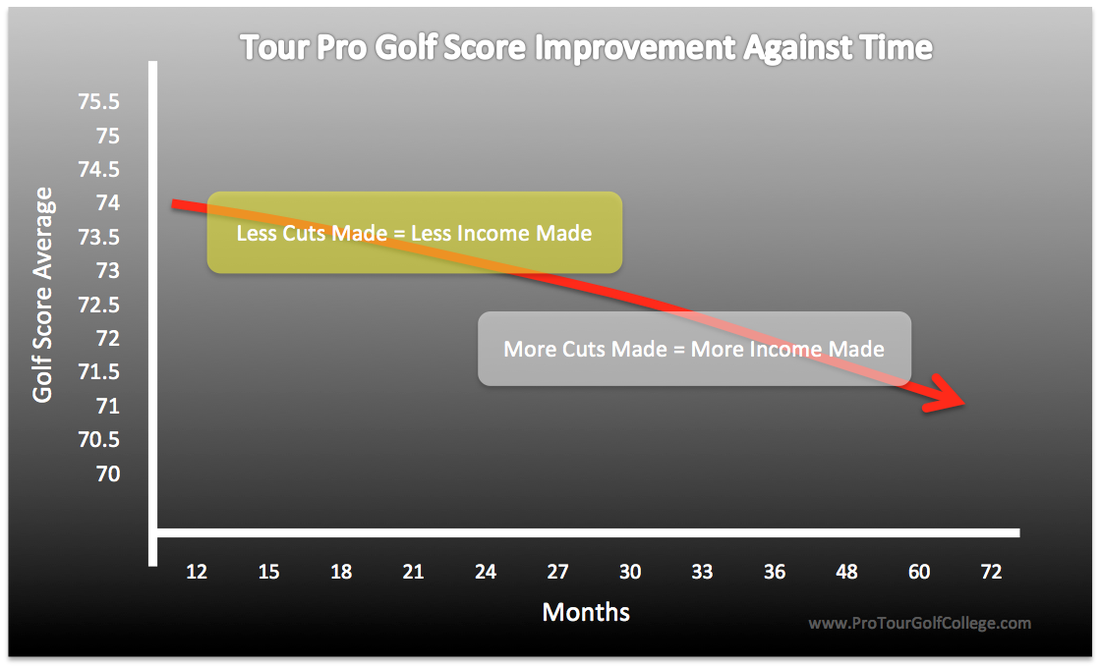
 RSS Feed
RSS Feed



